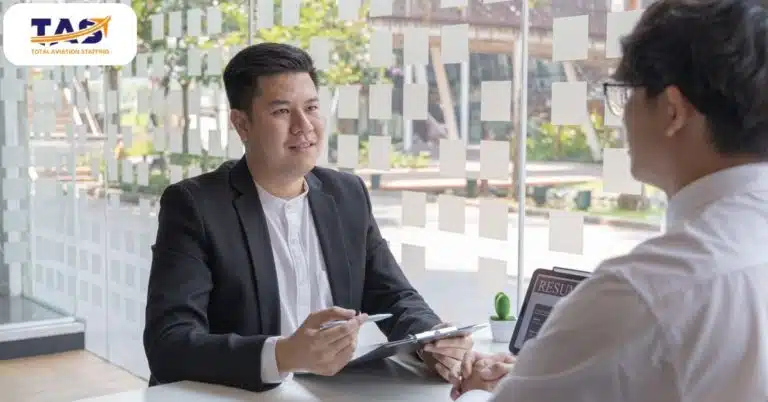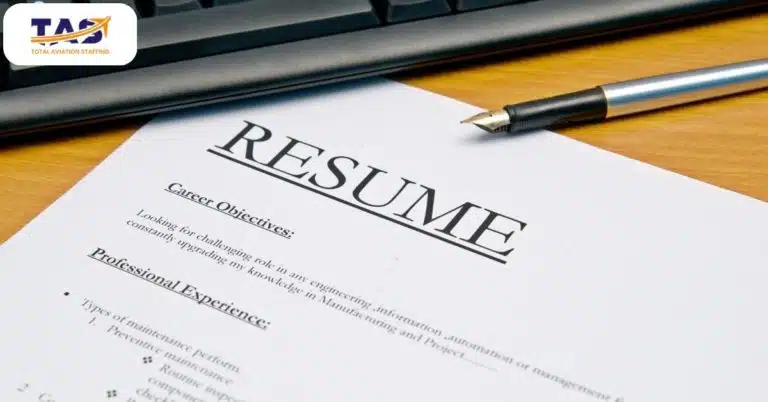Electrical Engineer Interview Tips: Getting the Job You Want

Are you an aspiring electrical engineer looking for tips to ace your next interview? An electrical engineering job is a highly sought-after position, and if you want to land this job, it’s important that you prepare yourself thoroughly. In this blog post, we will discuss some of the best electrical engineer interview tips that can help you get the job you want. We will focus on how to prepare for your interview, what questions to ask the hiring team and what kind of qualifications and experience you need to get the job. By following these tips, you can ensure a successful electrical engineering job search!
1. Research the Company and Hiring Manager
When applying for an aviation electrical engineering job, researching the company and the individual doing the hiring can give you a powerful edge in the process. Knowing specifics about the aviation employer, including their recent projects, engineering team makeup and culture, and any other relevant information can help during both the interview and in deciding whether to accept an offer. Researching the hiring manager himself or herself is also essential. Get acquainted with their history – look up publications they’ve written or products they’ve developed that may be relevant to the aviation job you are obtaining. Networking can provide invaluable insight into how best to speak with this manager during interviews and what type of attitude or qualifications will stand out to them most. Investing energy in researching both the aviation company and its hiring manager can go a long way towards landing you the aviation electrical engineer job you want!

2. Create a Portfolio Showcasing Your Work
Preparing for your upcoming electrical engineering interview? One key factor to consider is creating a portfolio that showcases the work experience and qualifications you have within the aviation industry. Having a portfolio ready provides potential employers with easy access to your information and allows them to make a well-informed decision about whether or not you are qualified for the position. It serves as a visual artifact of your proficiencies and can clearly articulate areas where you may need improvement. Make sure that all components included in your portfolio—resume, cover letter, references, resumes, etc.—are professional and polished in order to set yourself apart from other job applicants. Put in the extra time needed to create an impressive portfolio before going into your next aviation-related electrical engineering interview!

3. Practice Common Interview Questions
Preparation is key to succeeding in an electrical engineer interview, and one of the most important steps in practice. Practicing common interview questions enables aviation professionals to be confident and eloquent in their responses. Taking the time to become familiar with industry-standard questions at a basic level allows for more complex answers when the interviewer probes for deeper insight into a candidate’s skillset, achievements, and challenges. Memorizing likely related topics and aviation technologies quickly will demonstrate not only knowledge of the area but also a passion for the profession to any potential employer. Put together, these must-do tips can help ensure your electrical engineering expertise is noticed and appreciated in job interviews.

4. Demonstrate Solid Technical Knowledge
When preparing for an interview as an electrical engineer, it is important to show that you have a solid base of technical knowledge. This can be best demonstrated by actively participating in aviation-related initiatives and successes such as conferences, presentations, or projects. Let the interviewer know about your knowledge in aviation and other related fields, as well as applying modern concepts to industry problems. Additionally, bring up a few case studies of aviation successes you contributed to in the past. Having a repertoire of success stories to offer during the interview will go a long way toward impressing employers, showing them that you are truly passionate and capable of being successful in the aviation market.

5. Showcase Communication Skills
As an electrical engineer, communication skills can be a key asset to helping you land the aviation job of your dreams. Employers are looking for individuals that have excellent communication skills as they will often be interfacing with aviation professionals and customers on a regular basis. Showcasing these skills during the interview is essential. It is important to demonstrate that you possess the ability to effectively listen, provide detailed explanations and ask relevant questions. Communicating in a clear and concise manner can help demonstrate that you are well-suited for the aviation industry. With some thought and preparation before the interview, showcasing your communications skills can help put you one step closer to getting the job you want within aviation.

6. Highlight Relevant Projects in Your Experience
Being an electrical engineer requires a great deal of technical knowledge, and landing a job in the field can be difficult. One way to make sure you stand out from the competition is to highlight your experience in aviation. Drawing attention to any aviation-related projects in which you have been involved can demonstrate how proficient your understanding of electrical engineering is, and will likely give you an advantage during an interview. This could be anything from maintenance for an aviation company or research about aviation systems. Even if those types of relevant projects are not part of your current experience, try finding other ways to connect what experience you do have to aviation such as using aviation systems for example working with aircraft simulator scenarios. Doing this will ensure that potential employers get a better idea of your capabilities as well as illustrate that you have greater knowledge than just textbook experience.

7. Be Prepared to Answer Behavioral Job Questions
If you want to get the job you want as an electrical engineer, it is important to be prepared to answer behavioral job questions. Potential employers will likely ask you aviation-related questions that focus on the specific responsibilities for the role and how your past experiences help you prepare for it. In anticipation of these types of job queries, take time to assess your experiences and consider which ones have allowed you to develop essential skills like problem-solving, multitasking, and communication. Then, practice your responses in advance so that when asked at the interview, you can answer assertively yet professionally with relevant examples and anecdotes. This will demonstrate to hiring managers both your knowledge and enthusiasm for the aviation industry while highlighting why you’re an ideal candidate for their open position.

8. Ask Intelligent Questions About the Role and Company
Asking the right questions during an aviation electrical engineer job interview can be the difference between securing your dream position and losing out to a competitor. Before the interview, do some research on the company and look for any industry news or newly released products that you can reference in your questions. During the interview, make sure to ask questions about specific elements of the role you’ll be performing, such as necessary certifications, reporting procedures, team dynamics, the scope of responsibilities, and any potential aviation projects. It helps to demonstrate interest by asking thoughtful questions about the employer’s timeline to hire new staff, their track record of successful employees, and additional ways to become familiar with aviation engineering work culture. Taking this proactive approach shows that you possess both enthusiasm and technical knowledge which are traits employers are looking for in new hires.

9. Prepare for a Case Study or Practical Problem-Solving Test
Preparing for a case study or practical problem-solving test is essential to maximizing your chance of success when interviewing for a job as an electrical engineer. Firstly, research the aviation industry and become familiar with common aviation problems so that you are better equipped to solve the case study or problem-solving test. Secondly, prepare some cognitive questions to anticipate the kind of questions you might be asked in the interview. And thirdly, practice applying technical engineering knowledge in order to solve aviation engineering problems that you could be presented within the interview room. Doing so will not only demonstrate your understanding of aviation engineering principles but also your ability to apply them practically – something which employers value highly.

10. Bring Extra Copies of Your Resume, References, Samples of Work, Etc.
It is incredibly important for aviation electrical engineers looking for a job to have physical copies of their resumes and other pertinent information. Having these items play an integral role in your success during the interview process and should not be overlooked. Prior to attending the interview, all aviation electrical engineering candidates should ensure they bring multiple copies of their resume and other documents such as references or samples of prior work. This is an invaluable way to convey your qualifications in person, which might give you an edge over other applicants vying for the same position. Also, bringing extra copies allows potential employers to have access to your information on hand during the interview should it be needed. In summary, having physical copies of pertinent information at an aviation electrical engineer job interview will go a long way in ensuring you are putting your best foot forward.

In Conclusion
The aviation electrical engineering job interview process can be intimidating, but with proper preparation and research, you will be able to demonstrate your expertise and enthusiasm for the role. By reviewing relevant industry trends, practicing common questions and answers, preparing for a case study or problem-solving test, and bringing extra copies of your resume, references, and samples of work with you – you can have the confidence and knowledge necessary to stand out from other candidates. With these tips in mind, you will be sure to ace your upcoming aviation electrical engineering job interview.
